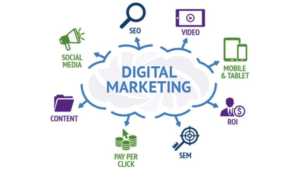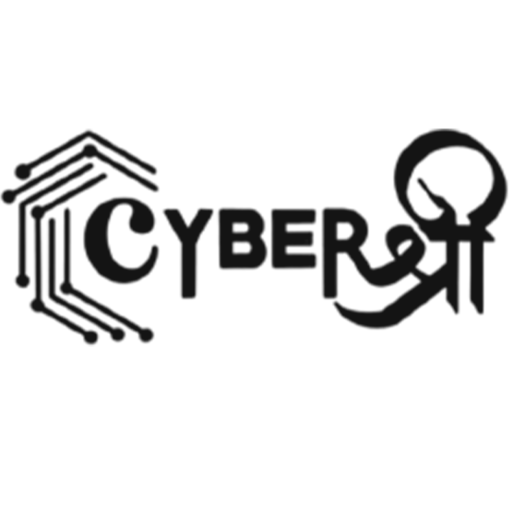What is Seo Link Building ?

1. Introduction to SEO Link Building
Definition of link building in SEO, What is Seo Link Building
- Link building in SEO refers to the process of acquiring hyperlinks from external websites to your own website. It is a crucial aspect of search engine optimization aimed at improving a website’s authority, visibility, and search engine rankings. Essentially, link building involves getting other websites to link to your website, indicating to search engines that your content is valuable and trustworthy.
- Links act as endorsements or votes of confidence for your website. When reputable websites link to your site, search engines consider it as a signal that your content is valuable and relevant, leading to improved search rankings. However, it’s important to note that not all links are created equal. High-quality links from authoritative websites carry more weight and have a greater impact on SEO compared to low-quality or spammy links.
- Link building can be achieved through various strategies, such as guest blogging, content promotion, social media sharing, resource link building, and outreach to other webmasters. It requires a combination of research, relationship building, and compelling content creation to attract natural and relevant backlinks.
- Overall, link building plays a significant role in SEO by enhancing a website’s visibility, driving organic traffic, and establishing credibility and authority within the online landscape. What is Seo Link Building
Importance of link building for search engine rankings
- Enhanced Visibility and Organic Traffic: Backlinks play a significant role in search engine algorithms. Search engines view backlinks as votes of confidence from other websites, indicating the quality and relevance of your content. When your website has more high-quality backlinks, search engines are more likely to rank it higher in search results. Improved rankings lead to increased visibility, which in turn drives organic traffic to your site.
- Authority and Trustworthiness: Link building helps establish your website’s authority and trustworthiness in the eyes of search engines and users. When reputable websites link to your content, it reflects positively on your website’s credibility. Search engines consider these backlinks as endorsements, signaling that your website is a reliable and valuable source of information. This can have a positive impact on your search engine rankings.
- Indexing and Crawling: Backlinks assist search engine crawlers in discovering and indexing your web pages. When a search engine comes across a link to your site on another website, it follows that link and crawls your pages. This process ensures that your content is included in search engine databases and made available to users in search results. Without proper link building, some of your web pages may remain undiscovered and not indexed by search engines.
- Anchor Text Optimization: Link building allows you to optimize the anchor text, which is the clickable text within a hyperlink. By strategically using relevant keywords in anchor text, you can provide additional context to search engines about the linked page’s content. This can help improve the relevance and ranking of your web pages for specific keywords.
- Competitive Advantage: In competitive industries, link building becomes even more critical. If your competitors have strong backlink profiles, it can be challenging to outrank them in search results. By actively building quality backlinks, you can level the playing field or even surpass your competitors in search engine rankings, gaining a competitive advantage and attracting more organic traffic.
- Long-term Value: Unlike some other SEO tactics that may provide short-term results, link building offers long-term value. Quality backlinks tend to have a lasting impact on your search engine rankings. Once acquired, they continue to influence your website’s visibility and authority, leading to sustained organic traffic and potential business growth.
- In summary, link building is essential for search engine rankings as it improves visibility, establishes authority, drives organic traffic, assists in indexing and crawling, allows for anchor text optimization, and provides a competitive advantage. Incorporating effective link building strategies into your SEO efforts can significantly impact your website’s success in search engine rankings. What is Seo Link Building ?
Overview of the different types of links
- Natural Editorial Links: These are organic links that are given voluntarily by other websites because they find your content valuable and want to reference it. Natural editorial links are highly valued by search engines as they indicate the credibility and relevance of your content.
- Manual Outreach Links: These are links that are acquired through proactive outreach efforts. Website owners or SEO professionals reach out to other webmasters, bloggers, or influencers to request a link placement. Manual outreach links require personalized communication and often involve building relationships with relevant website owners.
- Guest Posting Links: Guest posting involves writing and publishing articles on other websites in exchange for a link back to your own website. Guest posting can help establish your authority, gain exposure to a new audience, and acquire valuable backlinks.
- Resource Links: Resource links are earned by providing valuable resources, such as infographics, guides, or tools, that other websites find useful and link to as a reference. Resource link building involves creating high-quality content that attracts links from websites seeking to provide valuable information to their audience.
- Social Media Links: While social media links may not directly impact search engine rankings, they play a role in increasing brand visibility, driving traffic, and fostering engagement. Sharing your website’s content on social media platforms can lead to indirect link acquisition as other users discover and share your content on their own websites.
- Directory Links: Directory links come from online directories that categorize websites based on different industries or themes. While general directories have lost significance in recent years, niche-specific directories can still provide value if they are reputable and relevant to your website’s niche.
- Forum and Blog Comment Links: Commenting on relevant forums or blog posts can sometimes lead to acquiring backlinks. However, it’s important to note that comment links are often “nofollow” and may not have a significant impact on search engine rankings. Focus on providing valuable insights or contributions to the discussion rather than solely aiming for link acquisition.
- Press Release Links: Press releases, when distributed through online PR platforms, can lead to backlinks from news websites and other media outlets. However, press release links are generally temporary and may not carry long-term SEO value.
- Paid Links: Paying for links is against search engine guidelines and can result in penalties. Search engines aim to provide unbiased and organic search results, so paid links are considered a violation of these principles. It’s important to focus on acquiring natural, organic links rather than engaging in paid link schemes.

2. Key Concepts and Strategies in Link Building
High-quality and Relevant Links
- High-Quality Links:
- Authority: High-quality links come from authoritative websites that are trusted and respected within their respective industries. These websites have a strong online presence, quality content, and a good reputation.
- Trustworthiness: Links from trustworthy sources, such as reputable news sites, government websites, or educational institutions, carry more weight. These sources are considered reliable and credible by search engines.
- Natural Acquisition: High-quality links are typically acquired naturally through the merit of your content. They are earned because other websites find your content valuable and choose to link to it, rather than being manipulated or obtained through spammy tactics.
- Editorial Context: Links embedded within the editorial context of an article or webpage tend to be more valuable. These links are more likely to be clicked by users and are viewed as genuine endorsements by search engines.
- Relevant Links:
- Relevance to Your Industry or Niche: Links from websites that are relevant to your industry or niche are highly valuable. They indicate that your content is related to a specific topic and can provide additional value to users interested in that topic.
- Contextual Relevance: Links that are placed within relevant content or contextually related to the topic being discussed are considered more relevant. For example, if your website sells sports equipment, a link from a sports blog or an article discussing sports-related topics would be contextually relevant.
- Anchor Text Relevance: The anchor text—the clickable text of a hyperlink—should be relevant to the linked page’s content. The anchor text provides search engines with additional information about the linked page’s topic and can influence its rankings for specific keywords.
Natural Link Building
Natural link building, also known as organic link building, refers to the process of acquiring backlinks to your website naturally, without actively manipulating or artificially influencing the linking process. These links are obtained through the merit of your content and the genuine interest and recognition of other websites.
Here are some key aspects of natural link building:
- Valuable and Shareable Content: Creating high-quality, informative, and engaging content is the foundation of natural link building. When you produce content that provides value to your target audience, it increases the likelihood of other websites linking to it organically. Content that educates, entertains, solves problems, or offers unique insights tends to attract natural backlinks.
- Attracting Attention and Recognition: By promoting your content through various channels, such as social media, email outreach, or content partnerships, you can increase its visibility and reach. When your content gains attention and recognition, there is a higher chance of it being shared and linked to by other webmasters, bloggers, or influencers in your industry.
- Building Relationships: Developing relationships with influencers, industry experts, and other website owners can contribute to natural link building. By networking and engaging with these individuals, you may gain opportunities for collaboration, content promotion, or even earned mentions and backlinks.
- Outreach without Manipulation: While outreach can be a part of natural link building, it should be done in a genuine and non-manipulative manner. Instead of explicitly asking for a link, focus on building relationships, sharing your content with relevant parties, and letting the value of your content speak for itself. If your content resonates with others, they may naturally link to it.
- Earning Editorial Links: Editorial links, where websites link to your content voluntarily based on its quality and relevance, are highly valuable. These links are often the result of other websites referencing your content as a reliable and authoritative source. This can be achieved by consistently producing top-notch content that stands out in your industry.
- User-Generated Content: Encouraging user-generated content, such as product reviews, testimonials, or user-submitted stories, can lead to natural link building. When users share their experiences or opinions about your brand or products, they may include links to your website in their content.
- Social Sharing: While social media links may not directly impact search engine rankings, they can contribute to natural link building indirectly. When your content is shared on social platforms and gains traction, it increases the chances of it being discovered by other website owners who may then link to it from their websites.
3. Effective Link Building Techniques
Guest Blogging
Guest blogging is a link building and content marketing strategy in which you write and publish articles on other websites as a guest author. It involves collaborating with website owners or editors to contribute valuable content to their platforms in exchange for a backlink to your own website.
Here are some key points about guest blogging:
- Building Relationships and Networking: Guest blogging allows you to connect with other website owners, bloggers, and influencers in your industry. By contributing high-quality content to their platforms, you can build relationships, establish credibility, and expand your network within your niche.
- Increased Exposure and Brand Awareness: By publishing guest posts on reputable websites, you can reach a wider audience beyond your own website’s reach. This exposure helps to increase brand visibility and awareness among a targeted audience, potentially leading to new followers, customers, and opportunities.
- Authority and Expertise Establishment: Guest blogging enables you to position yourself as an authority and thought leader in your industry. By sharing your knowledge, insights, and expertise through valuable content, you can enhance your reputation and gain trust from readers, thereby boosting your credibility and influence.
- Traffic Generation: Guest blogging can drive referral traffic to your website. When readers find value in your guest post, they are likely to click on the provided backlink to learn more about you and your offerings. This traffic can lead to increased engagement, conversions, and potential customer acquisition.
- SEO Benefits: Guest blogging contributes to SEO efforts through the acquisition of backlinks. Backlinks from authoritative websites are considered a strong ranking factor by search engines. By securing relevant and high-quality backlinks from your guest posts, you can improve your website’s search engine rankings and organic visibility.
- Content Diversification: Guest blogging allows you to explore new topics, angles, or formats that may not be covered extensively on your own website. It provides an opportunity to diversify your content strategy, reach different audiences, and offer fresh perspectives.
- Guidelines and Best Practices: When engaging in guest blogging, it’s important to follow ethical practices and adhere to the guidelines set by the host website. Ensure that your content is unique, well-written, and tailored to the target audience of the hosting platform. Respect the rules and requirements regarding backlink placement and self-promotion.

Broken Link Building
Broken link building is an SEO strategy that involves finding broken links on other websites and reaching out to the website owners to suggest replacing the broken links with links to your own relevant content. It’s a win-win approach where you help website owners fix broken links while gaining backlinks to your own website.
Here’s an overview of the broken link building process:
- Identify Relevant Websites: Start by identifying authoritative websites in your industry or niche that have content related to your own. These websites should have a decent number of outbound links within their content.
- Find Broken Links: Use tools like Check My Links (for Google Chrome) or Broken Link Checker to scan the web pages of your target websites and identify any broken links. Broken links are hyperlinks that no longer lead to valid web pages and often result in a 404 error.
- Evaluate Relevance: Review the broken links you’ve found and assess whether you have relevant content on your website that can be a suitable replacement for those broken links. The replacement content should offer similar or superior value to what was originally linked.
- Craft Outreach Messages: Reach out to the website owners or webmasters of the target websites. Notify them about the broken links you’ve discovered and suggest your relevant content as a replacement. Be polite, provide the specific broken link URLs, and explain why your content is a valuable substitute.
- Follow Up: It’s common to not receive a response to every outreach attempt, so it’s important to follow up. Send a polite reminder after a reasonable timeframe, typically one to two weeks, if you haven’t heard back. Persistence can increase your chances of success.
- Track and Monitor: Keep track of your outreach efforts and the responses received. If a website agrees to replace the broken link with your suggested link, monitor the implementation to ensure the changes are made. Tools like Google Search Console or backlink monitoring tools can help you track the acquisition of new backlinks.
Benefits of broken link building include:
- Improved SEO: By securing relevant backlinks through broken link building, you enhance your website’s link profile and increase its authority in the eyes of search engines. This can positively impact your search engine rankings.
- Increased Referral Traffic: When your links are placed on relevant websites, visitors who click on those links can be directed to your website, potentially increasing your organic traffic and generating leads or conversions.
- Helping Website Owners: Broken link building provides value to website owners by assisting them in identifying and fixing broken links on their websites. It shows goodwill and can contribute to building relationships within your industry.
Tips for successful broken link building:
- Focus on Quality: Ensure that the content you offer as a replacement for broken links is high-quality, relevant, and adds value to the target website and its audience.
- Personalize Your Outreach: Tailor your outreach messages to each website you contact. Show that you have taken the time to understand their content and explain why your suggested replacement link is valuable to their readers.
- Be Professional and Polite: Approach website owners with respect and professionalism. Keep your outreach messages concise, clear, and courteous.
- Stay Organized: Keep track of the websites you have contacted, the broken links you’ve found, and the responses you receive. This will help you manage your outreach efforts more efficiently.
Broken link building can be an effective and ethical strategy for acquiring valuable backlinks and improving your website’s SEO. However, it requires time, research, and patience. By providing value to both website owners and their audience, you increase your chances of successfully implementing broken link building into your link building strategy.
Resource Link Building
Resource link building is a strategy in SEO that involves creating and promoting valuable resources on your website with the aim of attracting backlinks from other websites. It focuses on providing high-quality, informative, and useful content that serves as a reference or source of information for others in your industry or niche. The goal is to create content that naturally earns links from websites seeking to provide valuable resources to their audience.
Here’s an overview of the resource link building process:
- Identify Resource Opportunities: Identify topics or subjects within your industry or niche that can be developed into comprehensive, valuable resources. These can include guides, tutorials, templates, tools, case studies, infographics, research papers, or any other content that can serve as a valuable reference.
- Create High-Quality Resources: Develop the identified resource ideas into well-researched, in-depth, and visually appealing content. Ensure that the content is informative, unique, and offers insights or solutions that are not readily available elsewhere. Use credible sources, include visual elements, and present the information in a user-friendly format.
- Optimize for SEO: As you create the resource, optimize it for search engines by conducting keyword research and incorporating relevant keywords in the content, meta tags, headings, and descriptions. This helps increase the visibility of your resource in search engine results pages (SERPs).
- Promote Your Resource: Once your resource is published on your website, promote it through various channels. Share it on your social media platforms, reach out to relevant industry influencers or bloggers, and consider email outreach to inform others about your valuable resource. The goal is to attract attention and encourage others to link to your resource.
- Outreach to Websites: Identify websites, blogs, forums, or industry directories that might find your resource valuable to their audience. Reach out to the website owners, editors, or content managers and introduce your resource to them. Explain how your content can be helpful and provide a valuable addition to their existing content. Request them to consider linking to your resource if they find it relevant.
- Track and Monitor: Monitor the websites you reach out to and keep track of the responses you receive. If a website agrees to link to your resource, make sure they implement the link correctly. Use tools like Google Search Console or backlink monitoring tools to track the acquisition of new backlinks.
Benefits of resource link building include:
- Quality Backlinks: By creating valuable resources, you increase the chances of attracting high-quality backlinks from authoritative websites within your industry. These backlinks can positively impact your website’s authority and search engine rankings.
- Brand Exposure: Promoting your resource can lead to increased brand exposure and visibility within your industry. It can help establish your brand as a go-to resource and attract targeted traffic to your website.
- Authority and Thought Leadership: Creating comprehensive and informative resources positions you as an authority and thought leader in your field. It enhances your reputation, builds trust, and can lead to increased recognition and opportunities within your industry.
- Referral Traffic: Backlinks from relevant websites can drive referral traffic to your website. Visitors who click on these links are already interested in the topic and are likely to be engaged and interested in exploring your website further.
Remember to prioritize quality, relevance, and usefulness when creating resources. By focusing on providing value to others, you increase the likelihood of attracting natural backlinks from websites seeking to reference and share valuable content with their audience.
Social Media Link Building
Social media link building refers to the process of acquiring backlinks to your website or content through social media platforms. While social media links may not have a direct impact on search engine rankings, they can still contribute to your overall online presence, referral traffic, and brand visibility. Here’s an overview of social media link building:
- Optimize Your Social Profiles: Ensure that your social media profiles are optimized by including a link to your website in the bio or about section. This provides a direct link to your website and allows users to easily access your content.
- Share Valuable Content: Regularly share high-quality and engaging content on your social media platforms. This content can include blog posts, articles, videos, infographics, or any other form of content that provides value to your audience. When your followers find your content valuable, they may share it on their own social media accounts, thereby creating additional backlinks to your website.
- Encourage Social Sharing: Make it easy for your website visitors to share your content on social media platforms. Include social sharing buttons on your website or blog posts to encourage readers to share your content with their followers. This can increase the reach and visibility of your content, potentially leading to more backlinks.
- Engage with Influencers and Industry Experts: Build relationships with influencers and industry experts on social media platforms. Engage with their content, share their posts, and provide insightful comments. This helps establish connections and may lead to opportunities for collaboration or mentions on their platforms, resulting in backlinks to your website.
- Participate in Social Media Communities: Join relevant social media groups, communities, or forums where your target audience and industry professionals gather. Contribute valuable insights, answer questions, and share your expertise. By establishing yourself as a helpful and knowledgeable member of these communities, you increase the chances of others linking to your content when relevant.
- Collaborate with Social Media Influencers: Collaborate with influencers in your industry by providing them with valuable content or resources. This can include guest posting on their blogs, being featured in their videos, or co-creating content together. When influencers share your content with their large and engaged audiences, it can generate backlinks and drive traffic to your website.
- Monitor Social Mentions: Regularly monitor social media platforms for mentions of your brand, website, or content. When others mention your content without linking to it, reach out to them and politely ask if they would be willing to include a link. This can help turn unlinked mentions into valuable backlinks.
Remember, social media link building is about creating and sharing valuable content, engaging with your audience, and building relationships with influencers and industry professionals. While the direct SEO impact of social media links may be limited, the indirect benefits, such as increased brand visibility, referral traffic, and potential for organic backlinks, make social media an important part of your overall digital marketing and link building strategy.


